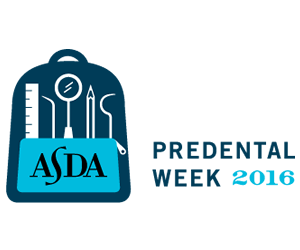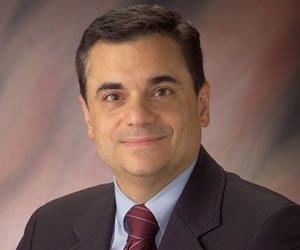Chances are after deciding to become a doctor, you’ve likely heard a lot of opinions about where you should apply to medical school. There is a lot of information out there, which can create the perception that you should look for the “best” school only based on average GPAs and MCAT scores of its applicants. But we know that your success is not measured by scores and academic data alone.
Just as you want a medical school to evaluate you as a whole applicant—considering your experiences, attributes, and interests—you shouldn’t evaluate medical schools based just on the numbers and statistics that represent them. The most important thing to consider is whether the medical school is a good fit for you. But how do you figure that out with so many schools and programs?
student
3 Tips for Interpreting Medical School Rankings
Whether you are just beginning your medical school application process by compiling a list of programs that interest you, or if you are choosing one program from multiple acceptance offers, chances are you have referred to a ranking of medical schools. There are a number of such lists, many available online, and each ranking relies on a unique methodology when judging programs. These lists can be very helpful when investigating the differences between medical schools, but they should not be the sole factor when making decisions about where to apply and where to attend. Consider these three guidelines, which can help you best use medical school rankings:
The Power of the Patient-Doctor Bond: A Conversation with Michael Clearfield, DO
Some people develop the passion for medicine at an early age. Michael Clearfield, DO, was not one of them – but once he did find that passion, he ran with it for miles.Although he’d been interested in science and math throughout college, and had a vague feeling that “something in healthcare would be something I’d be interested in,” it was ultimately a personal experience that cemented his future career goals. “Some personal issues happened in our family, where people got ill, and I was able to experience the healthcare team as it impacts you as an individual,” he told SDN at last year’s UC Davis Pre-Health Conference (UCDPHC15), where he delivered a keynote on opportunities in osteopathic medicine. “There were some very startling revelations to me; some positive, some negative – seeing how the system worked, and how it didn’t – and I decided that [medicine] would be a career that I would like to try and make a difference in.”
A Timeline For Your Ultimate Predental Experience
This article originally ran on ASDA’s blog, Mouthing Off, on Dec. 2, 2015. ASDA encourages all predentals to join us in celebrating Predental Week 2016 Feb. 21-27 and becoming a member of the association.
Yesterday was dental school acceptance day – the first day that dental schools start extending offers. If you aren’t quite at the point where you’re checking the mail for your acceptance letter, here are some tips on creating a compelling application.
There are endless opportunities available for predental students to enhance their applications. Most students are aware of the basic elements needed for applying to dental school: a great GPA, a high score on the Dental Admission Test, dental shadowing hours. These components are surely respected, but there are also other avenues available to leverage your experiences. It is important to discover, participate in, and highlight all potential prospects during your undergraduate career. As an enthusiastic predental student embarking on your journey toward the application and acceptance process, here are several recommendations to consider:
What You Should Know: Lies in the Patient-Doctor Relationship
What You Should Know is an ongoing series covering a range of informational topics relevant to current and future healthcare professionals.
It happens to every medical student sooner or later – the realization that their patient has lied to them. Especially for students, who are just beginning to gain clinical experience, this realization can come as a shock. A sense of betrayal, anger or even the desire for retribution can set in, all of which can be damaging to the doctor-patient relationship.
These emotions aside, it might help student doctors dealing with the nature of this reality to understand where deception enters into the therapeutic relationship – as well as how and why people lie in a clinical setting and what the doctor can do about it.
20 Questions: Ross D. Zafonte, DO, Physical Medicine and Rehabilitation
Ross D. Zafonte, DO, is Earle P. and Ida S. Charlton professor and chairman of the Department of Physical Medicine and Rehabilitation at Harvard Medical School. He also serves as chief of physical medicine and rehabilitation at Massachusetts General Hospital, as well as vice president of medical affairs research and education at Spaulding Rehabilitation Network. Zafonte received his bachelor’s degree in psychology and biochemistry from University of Georgia (1981) and his DO from Nova Southeastern University College of Osteopathic Medicine (1985). He completed a one-year internship at Henry Ford Bi-County Hospital, followed by a residency in rehabilitation medicine at Mount Sinai School of Medicine, where he was also chief resident. Dr. Zafonte was a program fellow in research enrichment at the National Institute on Disability and Rehabilitation.
Dr. Zafonte has been on faculty at Thomas Jefferson University, University of Missouri, Wayne State University, and University of Pittsburgh. He has published extensively, authoring more than 250 peer review journal articles, abstracts and book chapters. His work can be found in Brain Imaging and Behavior, Critical Care Medicine, Journal of Burn Care & Research, Journal of the American Medical Association, PM&R, Archives of Physical Medicine & Rehabilitation, and Movement Disorders. Dr. Zafonte serves on the Board of Governors for the International Brain Injury Association, as well as the American Congress of Rehabilitation Medicine.






